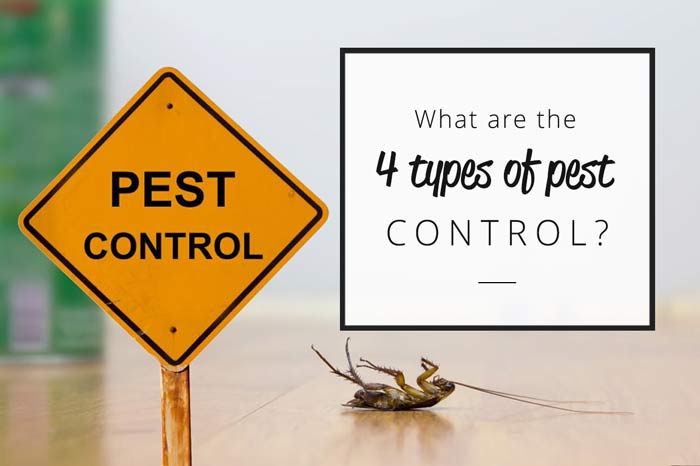Rumored Buzz on Pest Control
Rumored Buzz on Pest Control
Blog Article
9 Simple Techniques For Pest Control
Table of ContentsThings about Pest ControlThe Facts About Pest Control UncoveredThe Pest Control PDFsWhat Does Pest Control Do?Facts About Pest Control Uncovered
Limitations of Chemical Management Be able to examine insect problems, establish if monitoring is needed, and make suitable referrals utilizing IPM strategies. Be acquainted with different techniques of pest management - their advantages and restrictions.This chapter discusses (IPM), an approach that utilizes expertise concerning parasites and their, methods, nonchemical methods, and chemicals to take care of pest problems. Additional details about IPM for specific plants is consisted of in phases that focus on those plants. Insects in a garden or landscape may include pests and mites, weeds,, creatures, and birds.
Lots of people hurry to draw, hoe, or spray every weed they see. Pests and weeds, nevertheless, play a function in the. After growing a garden or developing a grass, the natural procedure of plant sequence starts to restore and nonnative plants. A weed expanding in a lawn stands for the first phase in a series of occasions that, if enabled to continue, might eventually result in a forest.
What we call "insects" belong to a natural system at the office. A community has no insects. Only humans think about specific types bugs when they occur where they are not desired. We will be a lot more effective in handling undesirable types when we recognize that these organisms follow foreseeable patterns that we can utilize to our advantage.
Some Known Factual Statements About Pest Control
Insects vulnerable to a pesticide were swiftly eliminated, leaving resistant ones to reproduce and multiply. It ended up being clear that chemicals alone would not address all insect problems.
An IPM plan allows some level of insects in the setting. Bugs are a lot less most likely to make it through a program that makes use of several various methods of decreasing their populaces. Integrated parasite administration was very first suggested by entomologists since insects were the initial group of insects to show tough to take care of with chemicals alone.
parasite and host properly. and consider financial or visual injury. A threshold is the point at which activity should be taken. a treatment technique utilizing mechanical, social, organic, or chemical controls, or a mix of these strategies. success of treatments. IPM has extended beyond bugs to monitoring of all pest populaces: weeds, condition microorganisms, and creatures.
The Ultimate Guide To Pest Control
Administration rather than removal of bugs is the goal. An IPM strategy starts with a careful evaluation of each insect problem.
Clover growing in a yard may be deemed an unwanted weed, but as a vegetable it is synthesizing nitrogen for the soil and the blossoms are offering nectar to honey bees and various other. Tolerance for some weeds may be component of an IPM plan. might be eating the fallen leaves of a plant, yet when anonymous they are determined as the larvae of Eastern tiger swallowtail butterflies, their damage may be endured so we can enjoy the gorgeous butterfly.

The 2nd essential tool in parasite management is early intervention. Being existing and observant in the garden makes sure very early discovery. Responding to troubles quickly, prior to they have time to increase, requires a much less remarkable treatment. The 3rd essential tool is recordkeeping; tracking what happens in the yard makes it possible for a garden find this enthusiast to recognize patterns and make informed decisions.
What Does Pest Control Mean?
Several safe, sensible, nonchemical methods of plant protection and insect administration may minimize or eliminate the need to spray. Other techniques are most helpful when made use of with chemicals. To implement management practices properly and to reduce losses, gardeners need to recognize the sorts of parasites that assault plants and recognize pest biology.

Conducting important site a soil test and applying only the advised quantity of plant food and lime maximizes the benefit to the plant while lessening troubles associated with excessive use fertilizer - Pest Control. Treatment the soil with numerous inches of compost protects the plant in several ways: minimizing soil water loss to evaporation, decreasing weed competitors, providing nutrients, and developing an ideal setting for earthworms and bacteria that maintain the dirt loose for roots and break down natural product to release nutrients
If mulch touches the trunk, it can create a method for voles, bacteria, and fungi to attack the plant. Do not make use of manure or garden compost that has not extensively disintegrated as a leading clothing because it can encourage unwanted bugs. Research study suggests that tilling the soil is destructive to dirt framework.
Little Known Facts About Pest Control.
If tilling is considered essential, think about doing it in the autumn when the life process of many insects brings them near the surface. At the surface, bugs become subjected to the weather as well as birds and various other all-natural opponents. Fall tilling can also destroy pests in crop deposits. Usage disease-free and insect-free licensed seeds and plants if readily available.
Report this page